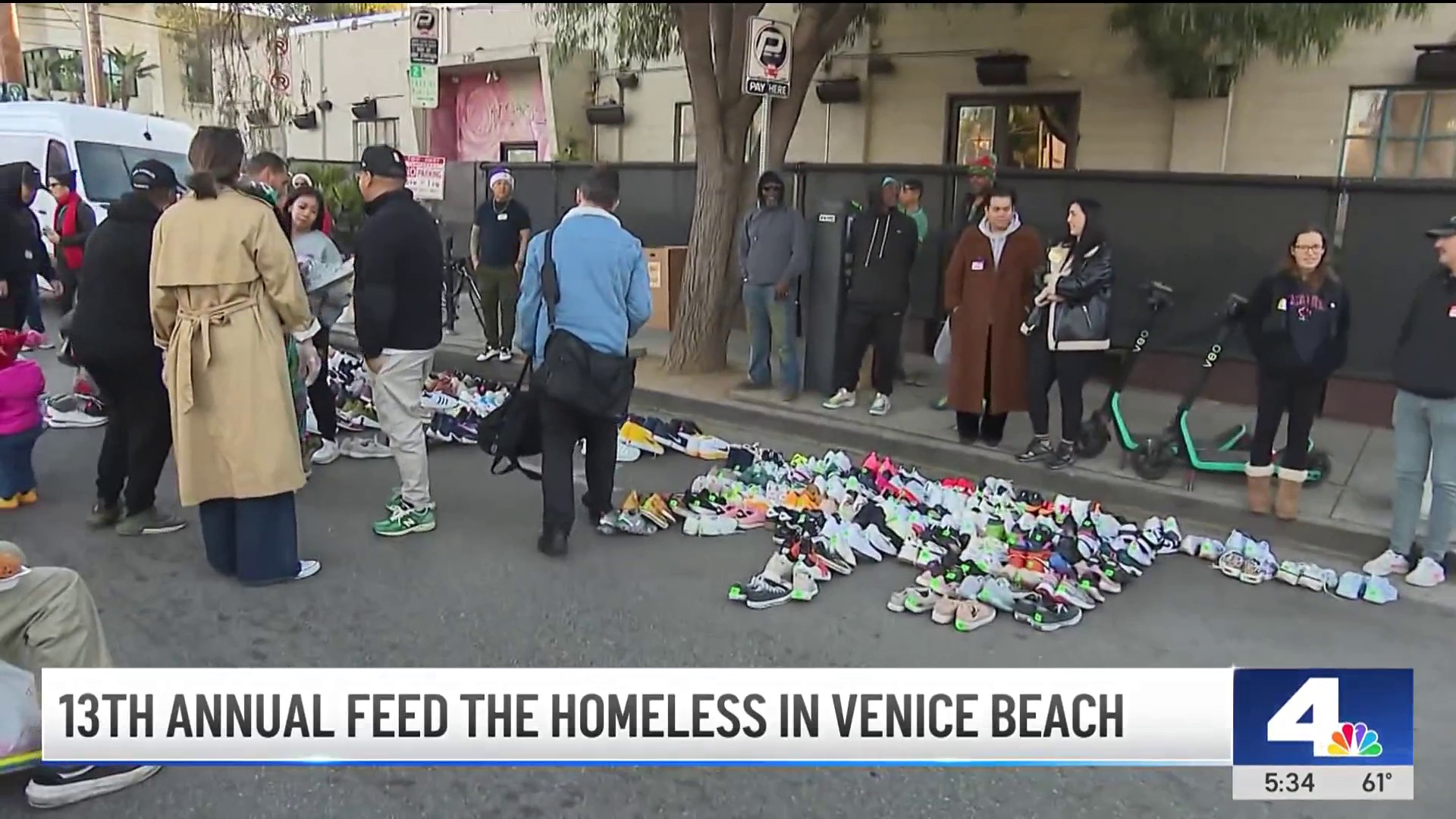The massive downtown stadium and convention center project proposed by Anschutz Entertainment Group should be approved even though the company is for sale, a city council committee decided Monday.
The proposal, part of an effort to bring NFL football back to Los Angeles, will go before the full council on Friday.
The action came after two top city officials insisted that AEG's potential sale would not pose a financial risk to the city.
"I do not see the potential sale of AEG putting the city at any risk at all," Chief Legislative Analyst Gerry Miller told the Ad Hoc Committee on the Downtown Stadium and Convention Center Renovation.
At the meeting, AEG President Tim Leiweke apologized for taking many in the city by surprise with the announcement last week that the company was for sale.
"Let me apologize for the disturbance and the disruption of the process," Leiweke said. "That's my fault. I'll take full blame for that."
Leiweke said AEG's Denver-based founder and owner Phil Anschutz would not have been able to own the property throughout its life anyway, because he is getting older, and the agreements are designed to last for 55 years.
The company decided to announce the proposed sale now, he said, so that it would be on the record before the City Council votes on whether or not to approve the stadium deal, rather than afterward.
Leiweke's comments came during the final meeting of a city committee considering the plan, which would involve an expansion and upgrade to the Los Angeles convention center as well as a stadium.
He urged the city to approve the project despite the looming sale, promising that AEG's current management team would remain in place.
Local
Get Los Angeles's latest local news on crime, entertainment, weather, schools, COVID, cost of living and more. Here's your go-to source for today's LA news.
Documents: Draft Environmental Impact Report | Agenda Packet
At the meeting, Leiweke faced questions about the sale of AEG and the future of the proposed stadium.
City Councilwoman Jan Perry, who chaired the meeting, asked how the city would be protected if the new owner did not have the cash to pay for AEG's promised contribution to the project. Under the terms of the deal worked out so far, the sports and entertainment company was supposed to pay for 40 percent of the multi-billion dollar cost of the proposed new stadium and surrounding development.
Perry expressed concern that the new owner might have to borrow too much money to finance the purchase, as frequently happens in corporate acquisitions.
In that case, the city could be on the hook for costs that could reach into hundreds of millions of dollars.
Leiweke responded that Anschutz would only sell to new owners who were committed to the company's agreement with the city.
"Mr. Anschutz has made it clear that he is only interested in selling this asset if we can find the right owner," Leiweke said. The company would make sure that the buyer is "capable, willing and passionate" about the deal.
City Administrative Officer Miguel Santana said that under the deal as currently structured, the city would be protected from such an eventuality - as long as it has not yet issued bonds to pay for the project.
The city is not obligated to move forward unless certain conditions are met, Santana said.
"We have to have a team and financing," he said. "Until we issue the bonds, the marriage isn't consummated."
The city is also protected against any effort by a new owner to build something that is different from the stadium, convention center expansion and other parts of the project that are covered by the deal with AEG, he said.
"The new owner can't suddenly make this into a mall or decide he's going to make it into some kind of residential high-end housing," Santana said.
The project is a key part of an effort to bring the NFL back to Los Angeles. Last week's announcement that AEG, owner of the Staples Center and LA Live complex, would be up for sale raised the question of whether new buyers would pursue the project.
The announcement came during a week in which the city's Planning Commission unanimously recommended approval of the project's Environmental Impact Report.
AEG also owns the Stanley Cup champion LA Kings and LA Galaxy, of Major League Soccer, which plays at Carson's Home Depot Center, also owned and operated by AEG. The company has a stake in the NBA's LA Lakers and other sports facilities and teams.
Naming rights for a downtown LA stadium have already been sold to insurance company Farmers, but LA has yet to find a tenant for the stadium.
Mayor Antonio Villaraigosa, who said he knew about the possible sale prior to the announcement, said the sale would not derail plans to attract an NFL team. LA has not had an NFL franchise since the mid-1990s after the departures of the Rams and Raiders.
"I have worked with both Phil Anschutz and Tim Leiweke for years to bring a football team to Los Angeles. I speak to both of them on a regular basis, and I have known about this potential sale for some time," the mayor said in a statement Tuesday. "I have the commitment from both of them that this won't affect plans for an NFL team to return to Los Angeles in the near future and so will not affect my support for moving ahead with Farmers Field."
Experts have said AEG might sell for as much as $7 billion.



